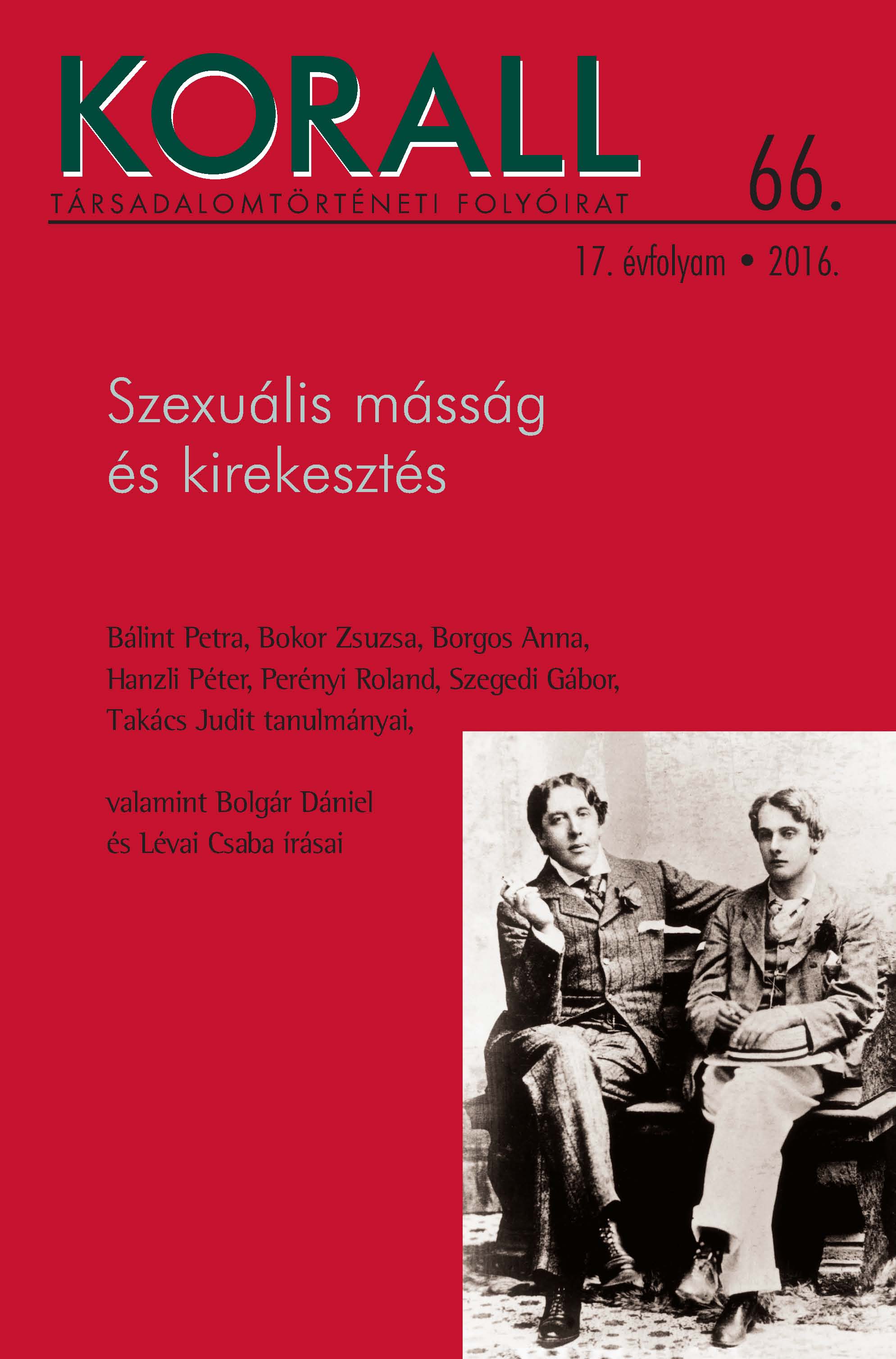Kíméletlen uzsorásokból kaftános puritánok
From Ruthless Usurers to Bekaftaned Puritans
The History of the Theory of Jewish Pariah Capitalism
Author(s): Dániel BolgárSubject(s): History of ideas, Social history, 19th Century, Pre-WW I & WW I (1900 -1919), History of Antisemitism
Published by: KORALL Társadalomtörténeti Egyesület
Keywords: social history;history of ideas;
Summary/Abstract: There are a number of available social historical theories explaining the origins of inequality between Jews and Gentiles. One of the best known long-standing theory explains modern Jewish success with the pre-emancipation exclusion of Jews, attributing their unique business style to their pariah status. The study explores this theory’s German origins, and its subsequent history in Hungary. Following the introduction of the Marxist background of the idea, the study turns to the analysis of Weber and Sombart’s debate about the birth of modern capitalist spirit, which gave rise to the concept of pariah capitalism. Both scholars agreed that Jewish success is rooted in the otherness of Jews suggesting that their seclusion led to the development of double morality, which brought about the characteristic Jewish ruthlessness in their dealings with the outside world. The Sombart–Weberian idea of pariah capitalism was integrated into Hungarian historiography by István Hajnal. In his interpretation, the Jewish success story simply meant the upward mobility of aliens in society, which he used to reveal the structural faults of social development in East Central Europe. Since Hajnal’s interpretation was heavily judgmental about Jews, this narrative lost its legitimacy after the Holocaust. István Bibó was the first historian who managed to strip the concept of pariah capitalism of its impropriety. Following in his footsteps Péter Hanák constructed the complete historical narrative of the Jew condemned to success by his exclusion, using Weber’s puritans as exemplars for the Jewish harbingers of Hungarian capitalism. The study ends with a brief reflection whether the theory of pariah capitalism has valid conclusions to offer for contemporary historiographical interpretations of Jewish success.
Journal: Korall - Társadalomtörténeti folyóirat
- Issue Year: 2016
- Issue No: 66
- Page Range: 164-195
- Page Count: 32
- Language: Hungarian

